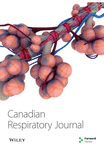Birthweight and Preterm Birth in Relation to Indicators of Childhood Asthma
Abstract
BACKGROUND: Early life events may have long term consequences on respiratory health including the risk of developing asthma.
OBJECTIVE: To examine the independent roles of birthweight and preterm birth on childhood asthma after accounting for socioeconomic status.
METHODS: A total of 989 elementary school children performed spirometry before and after a free-running exercise challenge. A subsample of 327 children underwent methacholine bronchoprovocation and allergy skin prick tests to common inhaled aeroallergens. Information on birthweight and preterm birth was obtained by parental interview. Socioeconomic status was established using parental occupation.
RESULTS: After adjusting for the effects of important confounding variables, birthweight was positively associated with forced vital capacity (FVC) and forced expiratory volume in 1 s (FEV1); FVC increased 4.5% per kg (95% CI 1.7 to 7.4) and FEV1 4.4% per kg (95% CI 1.8 to 7.2). Birthweight was not related to exercise-induced bronchospasm or an asthma diagnosis, but airway responsiveness to methacholine increased as birthweight decreased (P=0.01). Preterm birth independent of birthweight was associated with a lower FEV1/FVC (-1.7%; 95% CI -2.8 to -0.5).
CONCLUSIONS: Birthweight appears to be related to lung size and methacholine responsiveness while preterm birth appears to diminish airway size.




